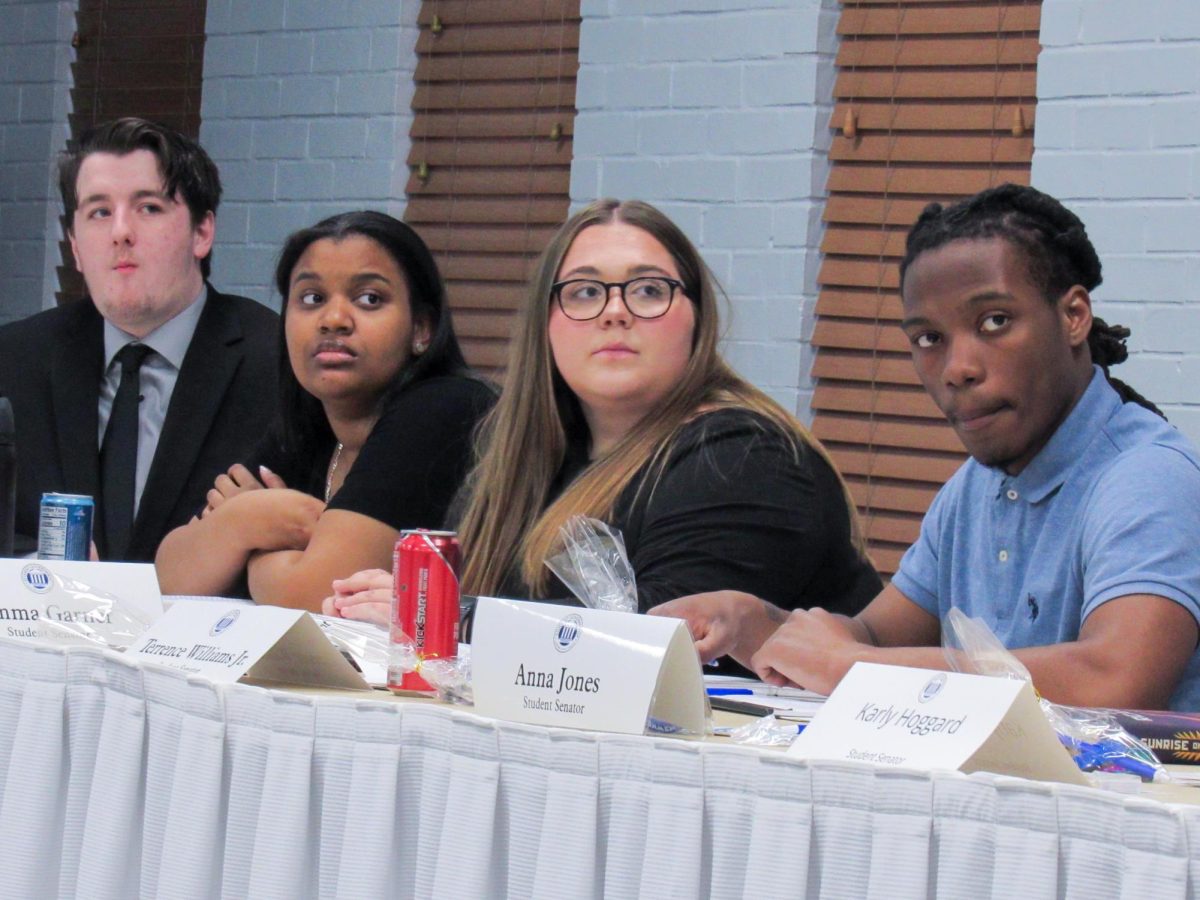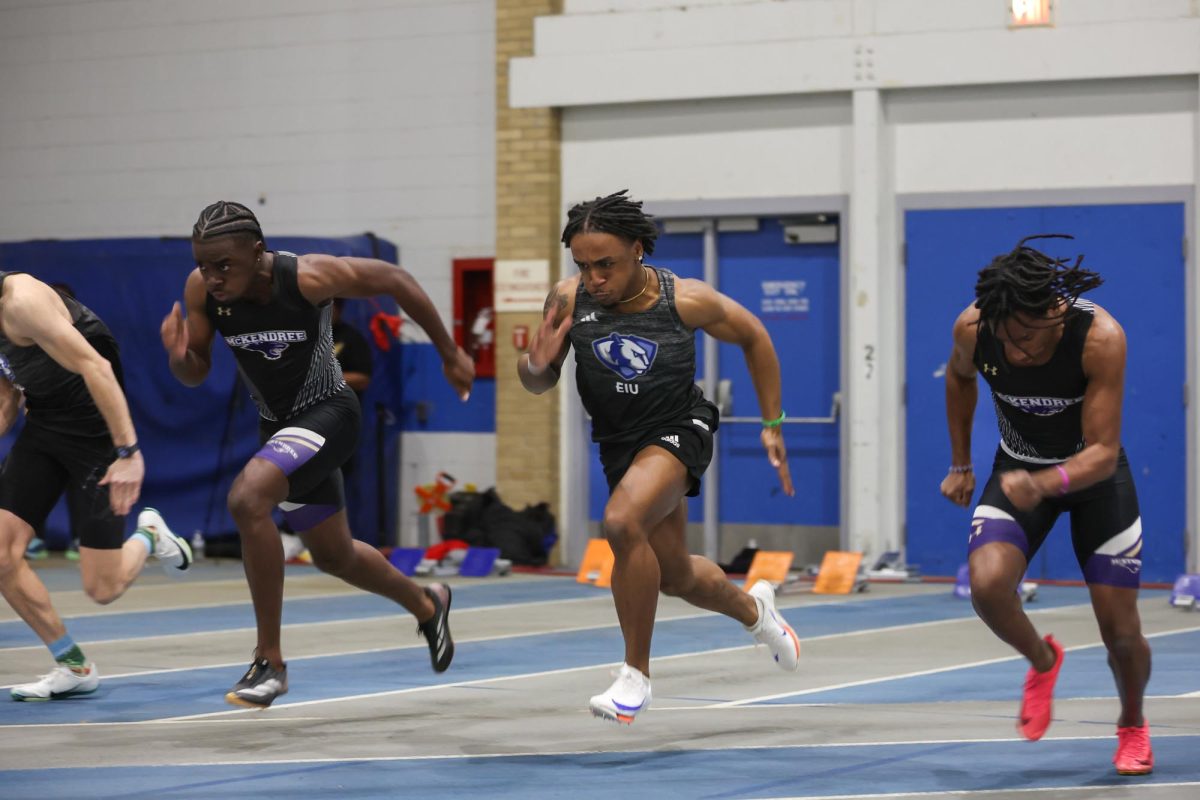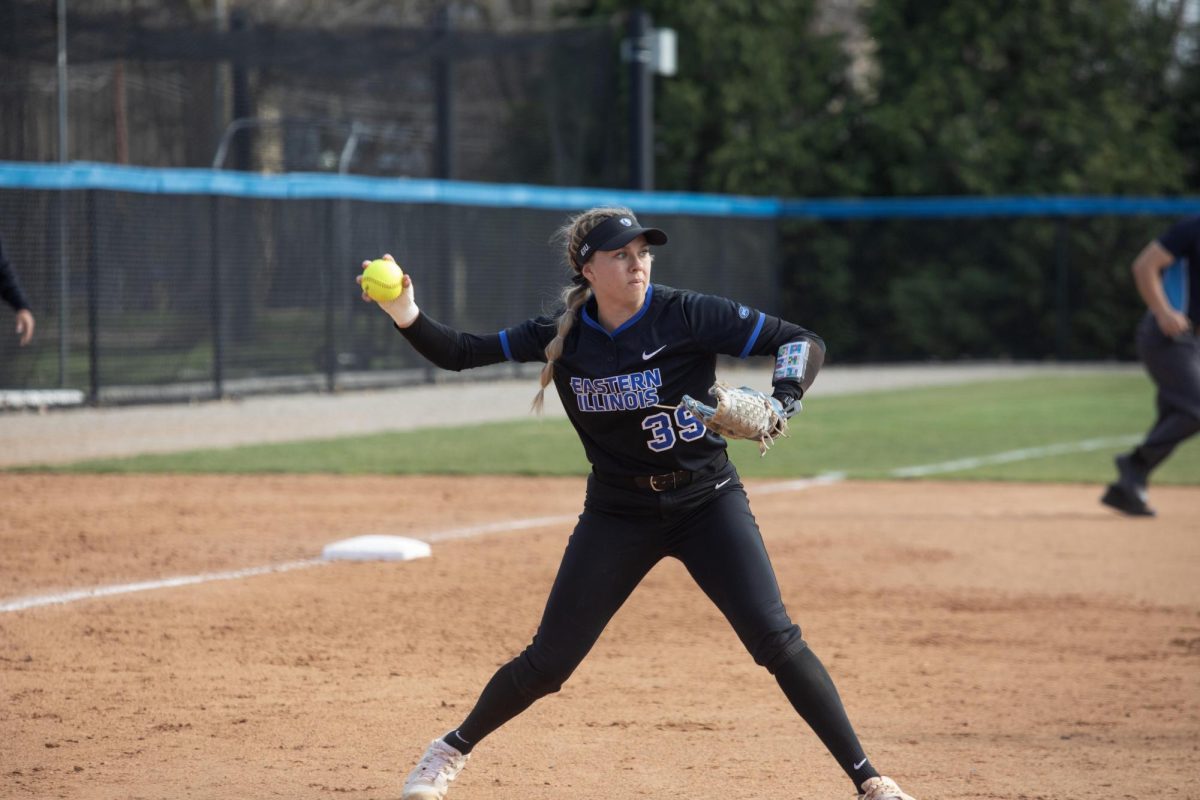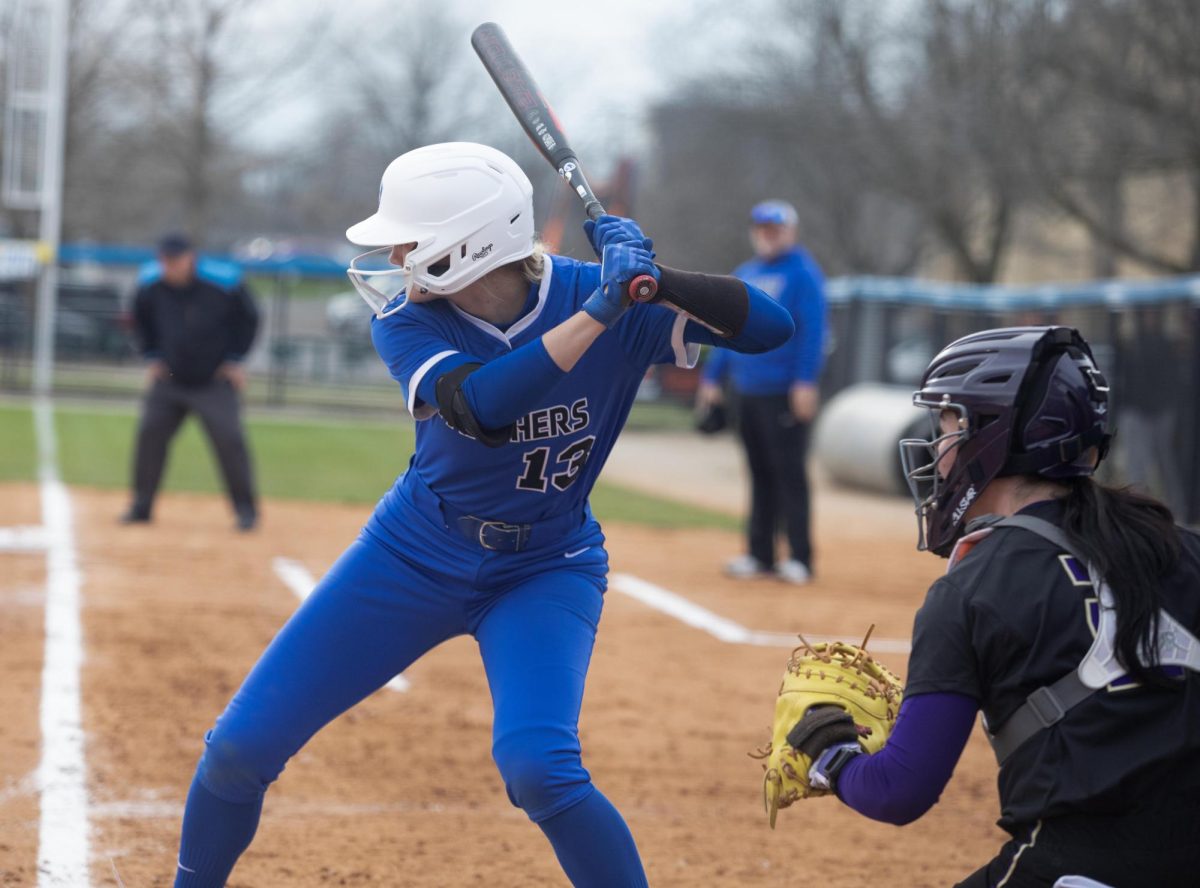National Guard students talk Veterans Day
November 11, 2019
Veterans Day is being commemorated all over the country as well as at Eastern, where student National Guard members have various opinions on the holiday.
Mackenzie Maslowski, a junior psychology major and Illinois Army National Guard soldier, said Veterans Day provides an opportunity to pay homage to those who signed away years, or in some cases all their lives, to be a part of something greater than themselves.
“It’s important to acknowledge the people who decided to give up their lives to protect our country, while there’s others who would never consider it,” Maslowski said. She has served in the National Guard for almost four years.
Kelly Chapman, junior philosophy major and Illinois Army National Guard soldier, said it is a day to “give thanks to the people that fought for the freedoms we have in this country.”
However, he said he believes the pomp and circumstance associated with Veteran’s Day is unnecessary and borderline disrespectful.
“I don’t think it’s important (to respect the holiday),” Chapman said. “The reason being is that everybody wants to say, ‘Thank you for your service’ and wants to show people that they care until it’s time to actually care.”
He continued to say the health care system for veterans is lacking in what former military members require to maintain good mental and physical health.
“The biggest thing we need to do is fix the transitional period from military to civilian,” Chapman said.
He said former military members need better plans for healthcare, finding civilian jobs and securing homes.
He said the Department of Veterans Affairs’ medical center, which is free for former combat veterans, is unsatisfactory and needs reform, specifically in the mental health aspect.
“The VA Center is the most trash medical center in the entire country … and people want to know why the ‘22 a day’ number happens,” Chapman said, referring to the statistics that show that 22 former or current military members commit suicide every day.
“Great, a free lunch at Denny’s is awesome, but if I can’t get the mental or medical help that I need, what does it matter?” Chapman said.
On top of that, Chapman said the homelessness rate of veterans is higher than any other subgroup, a statement verified by the 2018 annual homelessness assessment done by the U.S. Department of Housing and Urban Development.
The report showed that, while homelessness in veterans is on a steady decline, veterans are more likely to be homeless than any other subgroup.
Finally, Chapman said the job market for veterans is small and not very promising.
He said: “There are few (transitional) organizations that allow veterans to take the skills that they used in the military and directly transfer them into a job.”
He talked about Helmets to Hardhats, a system that helps former uniformed personnel secure a job after retiring from the military.
According to its website, Helmets to Hardhats is a “national, nonprofit program that connects National Guard, reserve, retired and transitioning active duty military service members with skilled training and quality career opportunities in the construction industry.”
Dakota Dowling, a sophomore elementary education major and Illinois Army National Guard soldier, said the holiday’s purpose is to remember the less than one percent of United States citizens that are military personnel.
“(Veteran’s Day) is for remembering what we serve for and what we do … and the freedom that we fight for,” Dowling said.
She also said our country’s perspective of the military differs substantially from that of other, more oppressive countries.
She said we have free reign to choose whether to pay homage to veterans, unlike in communist countries such as North Korea, where support of the military is mandated and expression of thought is moderated heavily.
On the subject of means of supporting and providing for those who have fought, Dowling said she believes it is important to respect the sacrifices our military members have made and welcome them home with open arms, rather than in the Vietnam era, during which most members of the U.S. military were socially exiled and their care was neglected.
Austen Brown can be reached at 581-2812 or albrown6@eiu.edu.













![[Thumbnail Edition] Junior right-handed Pitcher Lukas Touma catches at the game against Bradley University Tuesday](https://www.dailyeasternnews.com/wp-content/uploads/2025/03/MBSN_14_O-e1743293284377-1200x670.jpg)

![[Thumbnail Edition] Senior Foward Macy McGlone, getsw the ball and gets the point during the first half of the game aginst Western Illinois University,, Eastern Illinois University Lost to Western Illinois University Thursday March 6 20205, 78-75 EIU lost making it the end of their season](https://www.dailyeasternnews.com/wp-content/uploads/2025/03/WBB_OVC_03_O-1-e1743361637111-1200x614.jpg)







































![The Weeklings lead guitarist John Merjave [Left] and guitarist Bob Burger [Right] perform "I Am the Walrus" at The Weeklings Beatles Bash concert in the Dvorak Concert Hall on Saturday.](https://www.dailyeasternnews.com/wp-content/uploads/2025/03/WL_01_O-1200x900.jpg)
![The team listens as its captain Patience Cox [Number 25] lectures to them about what's appropriate to talk about through practice during "The Wolves" on Thursday, March 6, in the Black Box Theatre in the Doudna Fine Arts Center in Charleston, Ill.](https://www.dailyeasternnews.com/wp-content/uploads/2025/03/WolvesPre-12-1200x800.jpg)















